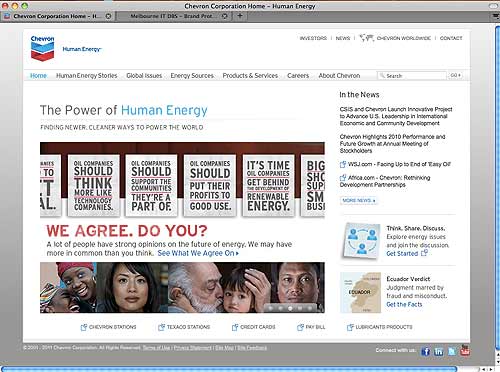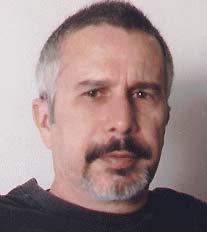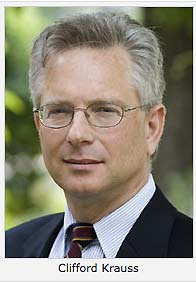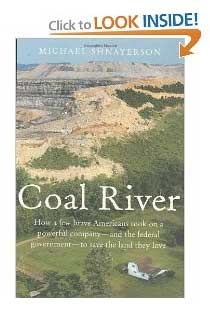Biblio
At Chevron, our businesses work in concert to provide the energy that drives human progress. Explore Chevron’s companies to learn how we use our global resources, determination and ingenuity to meet today’s complex energy challenges.
According to the EPA's National Emission Inventory, Chevron was responsible for 4,030,422.95 pounds of green house gas emission pollution in Plaquemines Parish, Louisiana in 2002.
Chevron was the first international oil company to operate in Nigeria and has, for almost 40 years of operations there, practiced the wasteful process of burning off of gas associated with oil drilling. [1]
Exxon Mobil Corp., ConocoPhillips, Chevron Corp. and Royal Dutch Shell Plc are as ill-prepared as BP Plc to halt and clean up an offshore oil spill because they all use “carbon copy” disaster plans, lawmakers said.
“The oil company response plans are great for public relations but these plans are virtually worthless in the event of a spill,” said Representative Bart T. Stupak, a Michigan Democrat. “It could be said that BP is the one bad apple in the bunch, but unfortunately, they appear to have plenty of company.” [2]
[1] Friends of the Earth. “The Case of Chevron.” Friends of the Earth, 2011. http://action.foe.org/content.jsp?key=3493.
[2] Jim Efstathiou Jr. and Joe Carroll. Jun 15, 2010. "Exxon, Others Slammed for Carbon-Copy Oil-Spill Plans". Bloomberg News.
A Satirical Tale of Two Chevrons
The Power of Chevron (2009)
Chevron is working to reduce greenhouse gas (GHG) emissions while expanding its energy supply portfolio to meet the world's energy needs.
Chevron climate change advisor Arthur Lee is an expert in carbon capture and storage. He has participated in industry workshops and the Intergovernmental Panel on Climate Change's (IPCC) Report on Carbon Dioxide Capture and Storage.
The Power of Chevron's Human Energy (2008)
The Power of Chevron's Human Energy (2008)
Video mashup by Jonathan Mcintosh | rebelliouspixels.com.
This is an identity correction remix that turns Chevron's multi-million dollar Human Energy greenwashing PR blitz on its head.
Though the video targets Chevron Oil and their Orwellian "Human Energy" campaign, it also focuses more broadly on corporate control of global oil supplies and the connection to aggressive American foreign policy.
In this corrected commercial the company's true nature is exposed for what it is, a heartless profit-driven oil machine. The Chevron corporation is not only an ecological catastrophe around the world but still does business with the Burma dictatorship, has oil contracts in war-torn Iraq and is responsible for human rights atrocities in the Niger Delta, among other unpleasant and nasty things.
This Political Remix Video is a critical and transformative work that constitutes a Fair Use in accordance with Title 17 U.S.C. Section 107. Source footage from Chevron TV ads, US Army ad, BBC News, Future Weapons, CSI and several other short clips recorded off television.
See: About Jonathan McIntosh | Rebellious Pixels - Digital Home of Jonathan McIntosh
Update:
Date: Mon, 06 Jun 2011 21:52:53 -0400
From: neil zusman <zusman@earthlink.net>
To: ChevronBPS <ChevronBPS@melbourneitdbs.com>
Subject: Re: Unauthorized Chevron Logo usage in your site - (http://frack.mixplex.com/content/chevron-corporation-human-energy)
- 1st Notice
On 6/6/11 5:31 PM, ChevronBPS wrote:
> Melbourne IT DBS Inc.
A recent review of your web site
*(http://frack.mixplex.com/content/chevron-corporation-human-energy)* indicated
that you are using one of Chevron's registered trademarks.
Chevron does not allow such use of its trademarks without express
written permission. We are advised that Chevron has no record of
such permission being granted.
If permission was granted from Chevron, please forward a copy of the
permission letter to Chevronbps@melbourneitdbs.com for their files.
If you did not receive permission from Chevron to post the logo on
your web site above, please remove the logo from your web site and
from all other locations where it is being used.
Thank you for your interest in my website. The piece needed editing.
As Chevron has requested, I removed the logo you are inquiring about and
replaced it with a screen shot of Chevron's website to ensure my
readers the clarity of context. The analysis of media and corporate
responsibility by energy sector companies are important to me. If you
wish to consider this matter further, I look forward to discussing your
concerns about Chevron's trademark rights in my representation of
Chevron as well as my Fair Use rights under Title 17 U.S.C. Section 107.
I welcome a productive and healthy relationship with Chevron and its
subsidiaries in the consideration of environmental issues and prudent
government regulation and trust that our covenant with the Earth will be
of mutual benefit.
Sincerely,
Neil Zusman
Fracking Resource Guide
See: News Updates on Chevron. 2011-06-06.
See: The Case of Chevron
See: BP Deepwater Horizon Committee Hears From Oil Industry Executives. 9-26-2010.
See: Poison Fire
See: Rancho Los Malulos | A satirical view from the McGill Brothers Lease
See: Natural gas: the commodity world’s ugly duckling
See: Controversial gas 'fracking' extraction headed to Europe
See: As You Sow - Corporate Accountability, Shareholder Action, and ToxicsReduction
See: The Yes Men | Climate Pledge of Resistance
See: Heather Clancy. "Shareholder flack flies over fracking". SmartPlanet. June 3, 2011.
...Open and honest communication, a safe working environment, ethical business practices and good neighbor initiatives are all an important part of how we do business each and every day.
Chief's gas well in Moundsville, West Virginia exploded June 7, 2010. Read the report from Pittsburgh Tribune Review.
Chief's most recent focus has been the development of the Marcellus Shale, a formation that runs from the southern tier of New York, through the western portion of Pennsylvania into the eastern half of Ohio and through Maryland and West Virginia. Chief currently holds more than 580,000 acres in Appalachia.
Susan Christopherson, J. Thomas Clark Professor of City and Regional Planning, has received a $100,000 grant from the Ithaca-based Park Foundation to study the economic effects of the proposed drilling in the Marcellus Shale, a rock formation that extends from New York south into Pennsylvania, Ohio, and West Virginia.
Christopherson has proposed conducting a $300,000 study that will examine issues such as the effects of the increase in gas drilling on schools, public health, and transportation systems.
The research project will be supported by several funders. “The question is, ‘What is going to be the cumulative effect of this kind of activity?’” says Christopherson, who specializes in economic development. “People are looking at this question from an environmental perspective, but no one is looking at it from an economic perspective.”
Christopherson worries about a “boom town” effect created by the surge of companies that want to extract natural gas from the Marcellus Shale. “We have had these periodically in the U.S. like the Gold Rush, where you get lots of people coming into an area in order to extract natural resources and then leaving,” she says.
Her hope is that the gas drilling could create a long-term investment in the economy of the Southern Tier. “I think they could do that,” she says, “but it has to be done very carefully. There has to be careful planning for the economy and to protect the environment. What people rarely recognize is that good environmental planning will also produce better economic outcomes.”
Secretary of Energy Steven Chu has appointed a panel of seven scientific and environmental worthies to study the rapidly growing method of natural gas extraction known as hydraulic fracturing and to make recommendations about how it can be done more cleanly and more safely.
The group includes John Deutch, a former Central Intelligence Agency director; Kathleen McGinty, a former top White House environmental adviser; and Daniel Yergin, probably the best-known oil industry analyst in the country...
Broder's piece goes on to offer a smokescreen of protest by the right, but according to Dusty Horwitt of the Environmental Working Group, “An industry insider like John Deutch is completely unacceptable to lead this panel...It looks as if the Obama Administration has already reached the conclusion that fracking is safe.”
Dr. Chu announced his decision late Thursday. This being Washington, House Republicans immediately issued a press release denouncing the study as wasteful, duplicative and yet another example of regulatory red tape run amok.
On the other side of the Capitol, Senator Richard Burr, Republican of North Carolina, went them one better, introducing a bill to dismantle the Department of Energy and the Environmental Protection Agency...
The EWG press release presents a clearer picture of the Administration's positioning and refers to a study by Duke University researchers, that found high concentrations of methane in 68 wells near shale-gas drilling and hydrofracking sites in northeastern Pennsylvania and New York, confirming property owners’ suspicions that gas extraction was leaking methane into their drinking water.
The "Paper of Record" has just as much a right as any blogger to present the facts or distort them.
In, "E.P.A. Proposes New Emission Standards for Power Plants", I caught the editors of the Times editing out an account of how Ms. Jackson invited a group of second graders from a nearby elementary school to the announcement. Earlier today, Mar. 17, it was edited out. Was it Broder and Rudolf, or the Times? Are children not newsworthy?
"She invited a group of second graders from a nearby elementary school to attend the rule’s unveiling at her agency."
Why did the Times delete it? The article as it first appears will always be located here. (PDF). The Google cache will expire as soon as you read this. See for yourself, read between the lines.
(Neil Zusman, 2011-03-17).
See: Clifford Krauss: propagandist par excellence
See: E.P.A. Proposes New Emission Standards for Power Plants
See: Scientific Study Links Flammable Drinking Water to Fracking
See: U.S. Congress. Committee on Space, Science, and Technology. "Hearing Highlights Lack of Objectivity in Draft EPA Fracking Study--No Evidence of Drinking Water Contamination from Fracking, Witnesses Say". May 11, 2011
A Project in Cooperation with the Thoreau Society.
The Thoreau Reader - Annotated works of Henry David Thoreau
While Walden can be applied to almost anyone's life, "Civil Disobedience" is like a venerated architectural landmark: it is preserved and admired, and sometimes visited, but for most of us there are not many occasions when it can actually be used.
Still, although seldom mentioned without references to Gandhi or King, "Civil Disobedience" has more history than many suspect.
In the 1940's it was read by the Danish resistance, in the 1950's it was cherished by those who opposed McCarthyism, in the 1960's it was influential in the struggle against South African apartheid, and in the 1970's it was discovered by a new generation of anti-war activists. The lesson learned from all this experience is that Thoreau's ideas really do work, just as he imagined they would.
See: The Higher Law: Thoreau on Civil Disobedience and Reform by Henry David Thoreau, edited by Wendell Glick, with an introduction by Howard Zinn.
As a result of his writings and personal witness, we are the heirs of a legacy of creative protest. - Martin Luther King, Jr, Autobiography
This work is included in Fracking Resource Guide as an homage to the many individual voices and blogs I will continue to read that help the world stay informed about the dangers of hydrofracking.
I will join you at the barricades. Drilling isn't safe.
See: Essay by Peter Suber. "Civil Disobedience".
...The Nuremberg principles require disobedience to national laws or orders which violate international law, an overriding duty even in (perhaps especially in) a democracy.
Americans depend on clean and abundant water. However, over the past decade, interpretations of Supreme Court rulings removed some critical waters from Federal protection, and caused confusion about which waters and wetlands are protected under the Clean Water Act. As a result, important waters now lack clear protection under the law, and businesses and regulators face uncertainty and delay. The Obama Administration is committed to protecting waters on which the health of people, the economy and ecosystems depend.
U.S. EPA and the U.S. Army Corps of Engineers have developed draft guidance for determining whether a waterway, water body, or wetland is protected by the Clean Water Act. This guidance would replace previous guidance to reaffirm protection for critical waters. It also will provide clearer, more predictable guidelines for determining which water bodies are protected by the Clean Water Act. The draft guidance will be open for 60 days of public comment to allow all stakeholders to provide input and feedback before it is finalized.
The draft guidance will reaffirm protections for small streams that feed into larger streams, rivers, bays and coastal waters. It will also reaffirm protection for wetlands that filter pollution and help protect communities from flooding. Discharging pollution into protected waters (e.g., dumping sewage, contaminants, or industrial pollution) or filling protected waters and wetlands (e.g., building a housing development or a parking lot) require permits. This guidance will keep safe the streams and wetlands that affect the quality of the water used for drinking, swimming, fishing, farming, manufacturing, tourism and other activities essential to the American economy and quality of life. It also will provide regulatory clarity, predictability, consistency and transparency.
See: William Ringler sentenced to prison of Clean Water Act violation
See: Supreme Court Restricts Clean Water Act
New York's drinking water is under threat from dirty drilling made possible by "hydraulic fracturing" -- but it doesn't have to be.
We can take a drilling "time-out" -- to learn the hard-won lessons of drilling-polluted communities in Pennsylvania, Colorado, and everywhere drillers pushed ahead without adequate regulation and enforcement.
How and Why Clean Water Protections Are Being Weakened
The Clean Water Act, as written in 1972, safeguards all of the "waters of the United States," through a number of programs. The federal Environmental Protection Agency (EPA) and Army Corps of Engineers regulations implementing the law have for decades reflected the intent of Congress to protect all of America's waters. These rules had been upheld by the vast majority of state and federal courts.
In 2001, however, a bare majority of the Supreme Court-in a case called Solid Waste Agency of Northern Cook Cty. v. Army Corps of Engineers - ruled 5-4 that the presence of a habitat for migratory birds is not sufficient justification for protection of a water that does not flow year round or that is an "isolated" wetland under the Clean Water Act. The decision in Rapanos v. United States in 2006 created further confusion about which waters deserved protection under the Clean Water Act.
...The Clean Water Restoration Act of 2009(S 787) introduced by Sen. Russell Feingold, D-WI, would accomplish these important goals and has been endorsed by Clean Water Action."
Clean Water Action: A Brief History
Mission Statement
Clean Water Action is an organization of 1.2 million members working to empower people to take action to protect America's waters, build healthy communities and to make democracy work for all of us. For 36 years Clean Water Action has succeeded in winning some of the nation's most important environmental protections through grassroots organizing, expert policy research and political advocacy focused on holding elected officials accountable to the public.
Passage of the original 1972 Clean Water Act, with many of the law's most important parts drafted by Clean Water Action, has been followed by other major successes. They include enactment of the federal Safe Drinking Water Act in 1974 and subsequent changes in 1996 that strengthened the law. Clean Water Action's successful defense in 1977 of the Clean Water Act's wetlands protection program was won by a single vote in the U.S. Senate.
Paul Schwartz, Clean Water Action National Policy Coordinator
202-895-0420 ext. 105
Take Action!
Clean Water Action: A Brief History
Mission Statement
Clean Water Action is an organization of 1.2 million members working to empower people to take action to protect America's waters, build healthy communities and to make democracy work for all of us. For 36 years Clean Water Action has succeeded in winning some of the nation's most important environmental protections through grassroots organizing, expert policy research and political advocacy focused on holding elected officials accountable to the public.
After having seen the powerful documentary Gasland that shows the impact of “fracking” on households across the United States, including flammable tap water and cancer clusters that are the inevitable outcome of natural gas drilling byproducts, I have begun to pay closer attention to news coverage, including my hometown papers in Upstate NY where energy companies are attempting to buy support from impoverished land owners.
So with that in mind, I read the article “When a Rig Moves In Next Door” by Clifford Krauss and Tom Zeller Jr. in the Business section of today’s NY Times with keen interest.
As is so often the case with the newspaper of record, it has to maintain the illusion of objectivity, so necessary for its market niche: college-educated professionals who vote Democrat, watch PBS, listen to NPR, drive a Lexus, and donate money to the ACLU or mainstream environmentalist organizations. It simply would not suffice for Krauss and Zeller Jr. to write the sort of thing that you would hear from Rupert Murdoch hirelings, even if it amounts to the same thing more or less.
I especially enjoyed his reporting on how some environmentalists are for gas drilling despite the inflammatory water faucets and cancer clusters:
"Some environmentalists support fracking and other means of extracting natural gas because gas emits a fraction of the carbon of either oil or coal. They also prefer it because it could replace coal as the nation’s principal source of electricity and provide a lower-carbon bridge before renewable energy sources can be developed on a larger scale."
You don’t have to be working at FAIR to ask the question which environmentalists?
I am the moderator of the Marxism mailing list, where my various articles first appear.
Climate change issues bring into greater prominence that all the world's people are linked together and that we all have a stake in creating a sustainable path for the planet and no such path can allow for 10 million avoidable child deaths each year.
--Kirk Smith, UC Berkeley, School of Public Health
Whatever your goal (economic growth, stable population democratic institutions, global equity, art, literature, science, an educated electorate, etc.), it is impaired by excess child mortality.
Malnutrition is the single most important risk factor for child mortality. According to Kirk Smith, "each of [its'] separate causes is thought to be increased by both climate change itself and, potentially, by efforts to combat climate change through biofuel expansion [and] energy price rises."
Professor Smith’s research addresses the relationships among environmental quality, health, resource use, development, and policy in developing countries, and the implications for policy of the potential to achieve co-benefits (health and climate) from pollution control in developing countries.
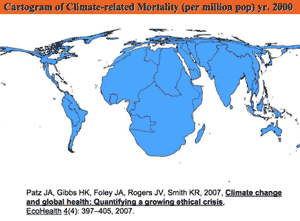
"One of the few positive sides of the climate change crisis is that the global village is no longer just an intellectual construct.
That we have one planet, one atmosphere, one set of mutual responsibilities, and one fate – these are now clear."
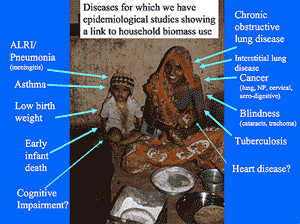
Thank you Professor Smith. I ask, what is the value of a human life? Climate change is going to kill millions of children, does it matter that they're not yours?
The value of a life in the United States is a factor in the quality of regulation and enforcement of the Clean Air Act, the Clean Water Act, and climate change policy initiatives that may not survive the Climate Zombies of the U.S. Congress.
As Washington and our insurance companies estimate an individual life's value at around 4 to 6 million dollars, the warrant for increased regulation of toxic industry seems more justified. Yet, the oil and gas industry and their government advocates still question the legal authority of the EPA and U.S. congress to enact and enforce environmental regulations as they relate to both climate change and the enormous consumption of water associated with hydraulic fracturing.
There are sociological and economic impacts of an unregulated energy industry. A tightly connected global ecosystem depends more and more on both a food and water supply that has become more privatized, making it difficult for self-sustaining indigenous farming to succeed.
One week's worth of food by various cultures:
Hundreds of millions of children are slated to die already, mostly by starvation, because of our present inaction.
The oil and gas industry has shown no evidence that it is ready or capable of self-regulation. It becomes an increasing threat to the health of humanity. (Neil Zusman. 2011-02-24)
"The exploitation of fossil fuels is integral to modern living and has been a key element of the rapid technological, social, and cultural changes of the past 250 years. Although such changes have brought undeniable benefits, this exploitation has contributed to a burden of illness through pollution of local and regional environments, and is the dominant cause of climate change.
This pattern of development is therefore unsustainable at a global level. At the same time, about 2·4 billion of the world’s population, disadvantaged by lack of access to clean energy, are exposed to high levels of indoor air pollutants from the inefficient burning of biomass fuels." (Wilkinson, 2007).
Smith, K. R, and E. Haigler. “Co-benefits of climate mitigation and health protection in energy systems: scoping methods.” Public Health 29 (2008): n. pag. Print.
Smith K.R., "Mitigating, Adapting, and Suffering: How Much of Each?", (Symposium on Climate and Health, KR Smith, ed), Annual Review of Public Health 29 (2008): 23. Print.
Wilkinson, Paul. et al. “A global perspective on energy: health effects and injustices.” The Lancet 370.9591 (2007): 965-978. Web.
See: Appelbaum, Binyamin. “A Life’s Value May Depend on the Agency, but It’s Rising.” The New York Times 16 Feb. 2011. Web. 17 Feb. 2011.
See also: Associated Press. "How to value life? EPA devalues its estimate: $900,000 taken off in what critics say is way to weaken pollution rules." 2008-07-10.
Climate Ground Zero started out as a campaign against oil and tar sands in Montana and Canada. Upon requests by local activists working to end mountaintop removal coal mining, Climate Ground Zero moved to Rock Creek, West Virginia.
Coal River Mountain was the last mountain to remain untouched by mountaintop removal mining in the Coal River Valley. Climate Ground Zero’s direct action campaign took off when Coal River Mountain was clear-cut in preparation for mountaintop removal in February of 2009. Since then over 150 people have been arrested in various actions on Coal River Mountain and other mountaintop removal sites in West Virginia.
Climate Ground Zero is not an environmental organization; it is an ongoing campaign of non-violent civil resistance in southern West Virginia to end mountaintop removal. Here at Climate Ground Zero we believe that the irrevocable destruction of the mountains of Appalachia and its accompanying toll on the air, water, and lives of Appalachians necessitates continued and direct action.
In West Virginia, an overwhelming majority of residents are opposed to mountaintop removal mining. However, political interests are highly invested in the coal industry and the EPA and the West Virginia DEP refuse to take real action to protect the environment and the people of West Virginia.
In order to stop mountaintop removal, we need to awaken the country to the devastation that mountaintop removal inflicts on one of the most biodiverse regions in the world, Appalachia, and its people. Since Climate Ground Zero came to West Virginia in 2009, hundreds of activists have come to the coalfields and stood with the residents of West Virginia to demand an end to the destruction.
Climate Ground Zero is a project of the American Forest Alliance and works in cohesion with Mountain Justice, a regional network of organizations in Kentucky, Tennessee, Virginia, and West Virginia, that seek the abolition of mountaintop removal in Appalachia and throughout the country.
July 25, 2009
Alexa Jay. December 2, 2010. Climate Science Watch. "Final hearing of the House global warming committee: 'a fight that is far from over'".
“There is growing evidence from the real world that climate changes are accelerating faster than we originally feared and that impacts—already appearing—will be more widespread and severe than expected. This makes the arguments against taking actions against climate change not just wrong, but dangerous,” Dr. Gleick said in his written testimony.
See: Tara Lohan. Feb. 19, 2009. Alternet. "Peter Gleick: How We Can Avoid a World Without Water". Interview with Peter Gleick.
Rick Piltz. Nov. 1, 2009. "On 'Editing Scientists' at the White House Council on Environmental Quality".
Scientific American contrasts CEQ chair Nancy Sutley’s stated position on science and policy at the White House with what we observed, reported, and documented under her Bush-Cheney CEQ predecesors, and what the House Oversight and Government Reform Committee discovered in its lengthy investigation initiated after we leveled our charge. “My role here and CEQ’s role is to advise the president on environmental policy,” says Sutley. “The science is what the science is…I am not editing science.”
When Nancy Sutley moved in to her new office as chair of the Council on Environmental Quality (CEQ)—a 40-year-old White House environmental policy advisory office created by Congress—she found a lot of red pens. Immediately, she removed the pens from her desk and asked her staff to remove any red pens from their desks, as well.
“The White House should not be in the business of editing science,” Sutley says. “Let the scientists do the science. It’s a really easy bright line for me.”
Rick Piltz is the Founder and Director of Climate Science Watch
Rick has worked as an educator, writer, and policy analyst and advocate since the 1970’s, in federal and state government, academia, and nonprofit organizations. During his more than 20 years in Washington, his primary focus has been on the collision of climate science with the reality of climate politics and policy.
From 1995-2005 he held senior positions in the Coordination Office of the U.S. Global Change Research Program. In the spring of 2005, Rick resigned from his position to protest the Bush Administration’s political interference with climate change communication. His whistleblower documentation of politically motivated White House editing and censorship of climate science program reports intended for the public and Congress received front-page coverage in the New York Times and was widely reported in the media. Rick testified before both the House of Representatives and the Senate at hearings on political interference with federal climate scientists.
See: Whistleblower.org
See: Public Supports Consumer and Environmental Protections, Polls Show
The incoming Republican chairs of the House of Representatives plan to send the United States back to the Stone Age with respect to climate policy. All of them opposed the climate legislation supported by President Barack Obama, and now oppose limits on global warming pollution under the Clean Air Act. Several have accused climate scientists of doctoring data and suppressing dissent; the others merely claim climate policy is actually a conspiracy to destroy the American economy. Meet the climate zombies who will be in charge of developing all federal legislation for the next two years:
SENATE
HOUSE
See: Grist. Dec. 29, 2010. "Upton argues Obama plans to destroy America in the name of global warming."
US coal mining companies have scored some points in their fight against the Environmental Protection Agency’s tough stance on mountaintop mining. A federal judge has ruled (PDF) in a preliminary decision that the EPA may have overstepped its legal authority by imposing strict new environmental standards on mining permits (via New York Times). The move comes just one day after the agency vetoed a permit for what would have been the country's largest mountaintop coal mine in Appalachia, West Virginia (see Nature’s blog here).
See: Ken Ward Jr. "Breaking news: EPA vetoes Spruce Mine permit." Coal Tattoo. Jan. 13, 2011.
From Publishers Weekly
Through vivid first-person reporting and a thorough culling of court transcripts, newspaper clippings and corporate reports, Vanity Fair contributing editor Shnayerson (The Killers Within) has crafted an incriminating indictment of the Appalachian King Coal industry in West Virginia, and of the man he defines as its rapacious kingpin, Massey Energy's CEO, Don Blankenship.
The author's sympathies lie clearly with opponents of mountaintop mining, most prominently young attorney Joe Lovett and citizen activist Judy Bonds. Both have fought against a form of mining that shears off the tops of hills and dumps rubble into valleys and streams—a process abetted by the collusion of the state's often-lackadaisical Department of Environmental Protection, the U.S. Army Corps of Engineers' propensity to grant stream-destroying permits without oversight and the easing of environmental controls by the Bush administration.
Shnayerson's compelling take on toxic mining methods and their heartrending impact on Appalachian inhabitants and their culture, has a wider focus than Erik Reece's 2006 title, Lost Mountain, which reported on one mountaintop's destruction, and strong echoes of the stomach-churning legal machinations recounted in Jonathan Harr's 1995 bestseller, A Civil Action.
See: Michael Shnayerson web page.
See: Marsh Fork Elementary: Journey Up Coal River | A Community and Strip Mining
See: WATER | Aurora Lights. Public Health & Coal Slurry - Water Quality ::: Journey Up Coal River
See: Tree spiker : from Earth First! to lowbagging: my struggles in radical environmental action
See: Leveling Appalachia: The Legacy of Mountaintop Removal Mining
See: Environmental Issues and Challenges in Coal Bed Methane Production
See: Climate Ground Zero
See: Mountaintop Removal






